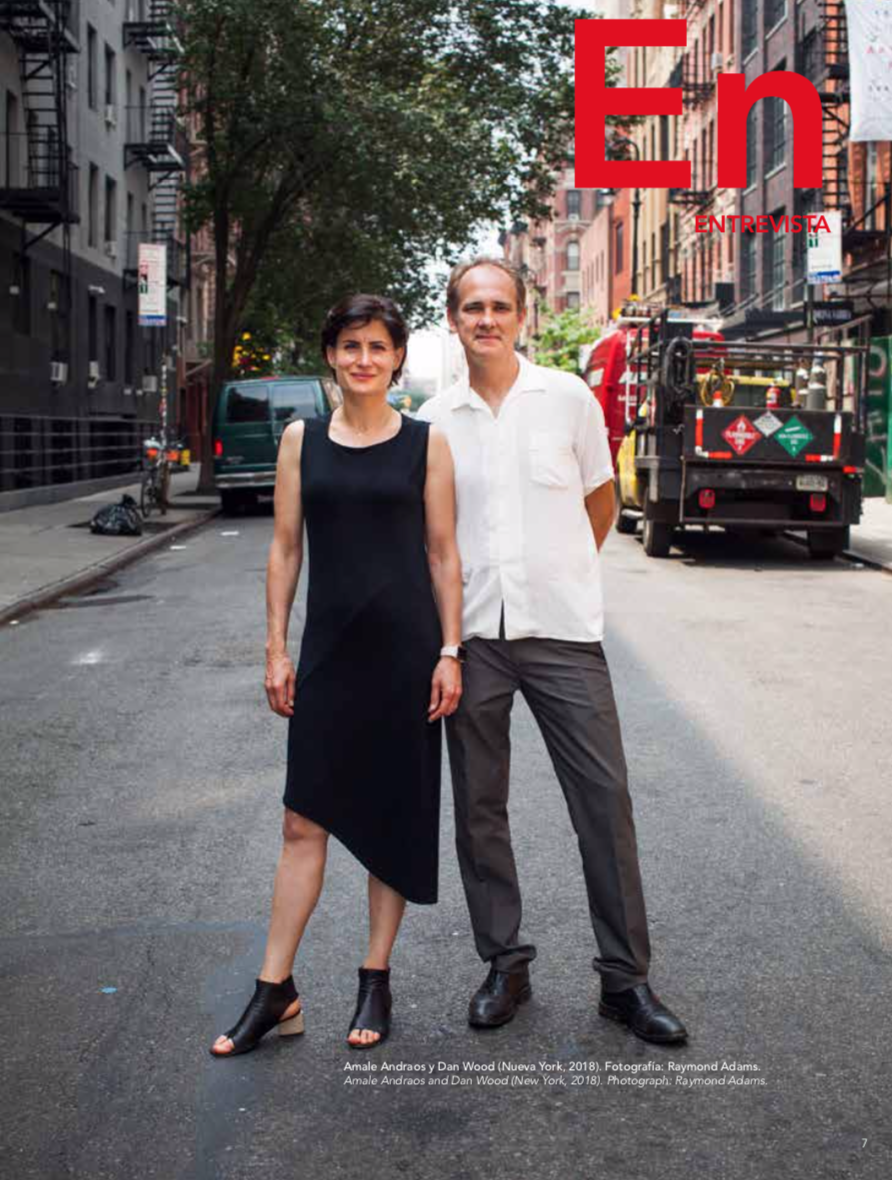Amale Andraos and Dan Wood: The conversation at the heart of the design process
Main Article Content
Abstract
In 2003, Amale Andraos and Dan Wood founded WORKac with a clear objective: reinventing the profession through new relations between architecture, city and nature. The Public Farm 1, the Edible Schoolyards in New York and the future Convention Center at Libreville, Gabon, are, among others, the result of this objective. Their work has been extensively awarded, including capturing the recent number one spot at 'Architect 50': Top 50 Firms in Design 2017 by Architect Magazine and AIANY Architect Firm of the year 2018.
In parallel to the profession, Andraos and Wood have become leading actors in different architecture schools. Amale Andraos has taught at Harvard, Pennsylvania and Princeton, among other schools; and Dan Wood at UC Berkeley, Princeton, Yale, Cooper Union, among others. Nowadays, both are faculty at Columbia GSAPP, where Amale Andraos holds as dean since 2014.
In this interview, Amale Andraos and Dan Wood pose their office as a subject in dialogue, which is, at the heart of their work; and through this, they build their way to think and to make architecture ‘in the world’.
Article Details

This work is licensed under a Creative Commons Attribution-NonCommercial 4.0 International License.
Materia Arquitectura provides immediate and free access to all the content of this online edition, published simultaneously with the print edition.
Materia Arquitectura does not charge authors for any concept.
All contents of this electronic edition are distributed under the Creative Commons license of "Attribución-shareAlike 4.0 Internacional" (CC-BY-SA).
The rights of the published texts and images belong to their authors, who grant Materia Arquitectura the license for their use. The management of the permits and the authorization of the publication of the images (or of any material) that contains copyright and its consequent rights of reproduction in this publication is the sole responsibility of the authors of the articles.
As long as they mention their origin, the authors are free to distribute their articles by other means. Any total or partial reproduction of the material must mention its origin.
